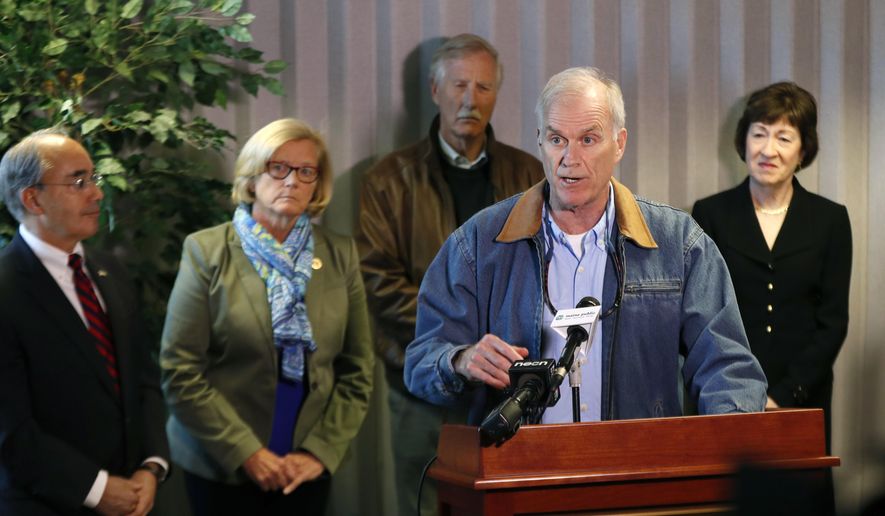BATH, Maine (AP) - The review of deadly collisions involving two U.S. destroyers will include analysis of best practices outside the Navy, looking to private organizations as varied as British Petroleum and the Mayo Clinic, Navy Secretary Richard Spencer said.
Spencer said Friday his review will seek expertise from the civilian maritime community and look at lessons learned from the private sector, not just the Navy. He cited British Petroleum’s comprehensive review after the Deepwater Horizon disaster and the Mayo Clinic’s efforts to optimize teamwork in high-pressure environments.
Spencer’s review is one of two that the Navy is conducting after collisions involving the USS Fitzgerald and John S. McCain that killed a total of 17 sailors. The other is being led by the chief of naval operations.
“We’re addressing it on multiple fronts,” Spencer told reporters at Navy shipbuilder Bath Iron Works, which built both of the warships.
The Navy secretary’s first visit to the shipbuilder that employs 6,000 workers came a day after the Navy and shipyard completed negotiations on a contract for two more Arleigh Burke-class destroyers.
It was long-awaited and welcome news for the shipyard.
Sen. Angus King quipped, “Anytime you want to visit Bath, you’re welcome. Now that you’ve established the precedent, bring a couple of destroyers with you.”
Also joining the entourage were U.S. Sen. Susan Collins, who helped obtain funding for the ships, and U.S. Reps. Chellie Pingree and Bruce Poliquin.
Spencer said the Navy needs additional destroyers as it seeks to add more than 50 ships to the fleet in coming years. An additional $5 billion to $5.5 billion in annual spending is needed over 30 years to reach the 355-ship goal, according to the Congressional Research Service.
The Navy is looking at its options, and Spencer acknowledged those include bringing back into service retired frigates and cruisers, if that’s deemed to be a cost-effective means of helping to reach the goal.
He said the Navy is also looking to overhaul its relationship with shipbuilders by working together to both contain costs and to ensure that there’s adequate shipbuilding infrastructure.
Maine’s congressional delegation praised Spencer for the fast pace of contract negotiations on the two destroyers that ensures there will be no disruptions in workflow at the shipyard.
“We can’t simply sit here and mandate, ’We want ships built.’ We have to understand what the actual industrial base can support and where capacity is. Where we can help to expand capacity in lockstep with our suppliers, our contractors, we will do so,” Spencer said.




Please read our comment policy before commenting.